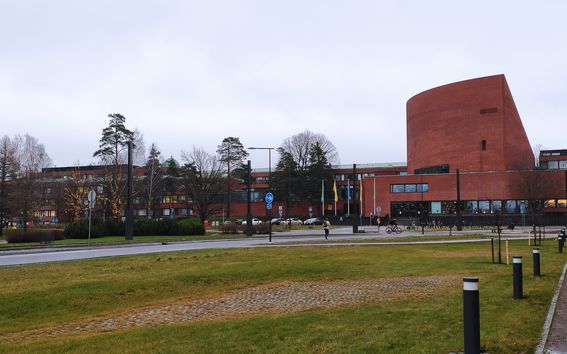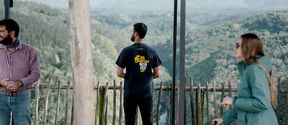How is it to study in Aalto?
Having studied my bachelor in Greece and doing my master's in Finland, which is ongoing, has given me a perspective of what it's like to study in different countries and cultures. Based on my experience, I would like to describe how courses are organized in Aalto and how is it to study here. Big part of my studies has been influenced by the pandemic, but everyone did what they could for it to be an interesting and rewarding experience.
Lectures & study material
The courses are organized in 5 teaching periods, each of which lasts about six weeks. The courses which I participated in have had a good structure and covered quite extensive material. The core of the teaching is what comes as no surprise, the lectures. Although mostly having been held online, they have been interesting, the professors have been engaging and tried to spark some discussion for example, through breakout rooms. There has been enough time for questions in every lecture. We often had guest lecturers from experts in the field, which added variation and often familiarized us with industry practices. We have been provided with lecture notes, additional learning material with up-to-date information and possibility to study further through literature available online and offline through learning center (Aalto’s library).
Weekly exercises & group work
In almost all courses there are weekly exercises that help comprehension and deepen the knowledge. Exercise sessions are usually held weekly where we get explanation and some hints to begin solving the exercises. Many courses have a group assignment that includes either a group essay, presentation, or both. Despite that pandemic has complicated a bit the group work, I have seen the big benefit of working collaboratively. We have been mostly having zoom meetings and when it was possible meetings in the study rooms at the university’s premises. In most of the groups that I participated there was mostly evenly contribution of the group members. People who had work experience shared it with us. Thus, it was interesting to bring together different experience from industrial or academic environment and from different countries.
Choosing courses & minors
Choice of courses is based on individual interest, but there are also few compulsory courses per program. For, example, in my program of building technology there have been 6 compulsory courses of 5 ECTS each. On master’s level, at least, it is good to consider taking subjects that are within the same area one wants to complete the master thesis in. One exciting possibility has been that we can choose among a variety of different courses and a part of the ECTS can also be completed from a different program or even school and it is possible to take a minor including those courses. That exposes students to different fields, so that they can further explore their interests and have a broad studying experience.
- Ioanna, a second year master's student in the Master's Programme in Building Technology

Show other posts from this blog

Insights from studying collaborative MA programmes (Part 1/2)
Michael shares his experience in studying a Master's degree in Creative Sustainability and International Design Business Management.
8 Tips to A Successful LinkedIn Strategy
Areeb gives tips and shares practical examples on effective LinkedIn use to help you stand out in job search.
How to Slush 101
Labiba shares her experiences and tips on volunteering at the world's leading startup event Slush. Keep an open mind, talk and detox.